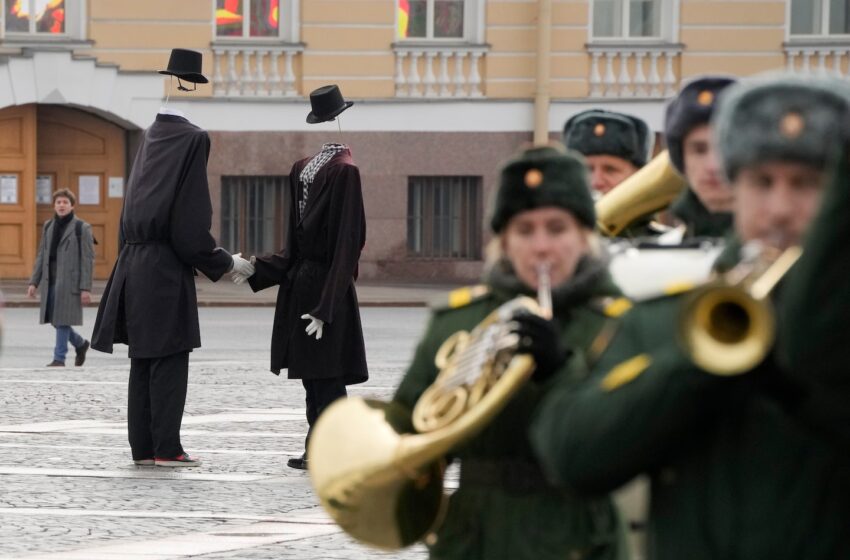NYPD officers arrest Columbia protesters after school asks for help

What Victory Day means for Russian identity

Last month, the General Staff of the Armed Forces of Ukraine said that Russian soldiers were being told that the war must end by that date. On Sunday, Axios reported that the upcoming deadline could become a pivotal and menacing moment in a war that has killed thousands and displaced millions.
While speculation about that day swirls, the importance of the day for Russians cannot be underestimated, as the nation seeks to become an empire by waging war in a country that wants to establish its independence, Russian history scholars told The Washington Post.
Field Marshal Wilhelm Keitel, a Hitler loyalist and commander of all German armed forces during World War II, signed the act of Military Surrender on May 8 in Berlin, though time difference between Germany and Russia meant that it happened on the 9th for Russia and its neighboring countries.
That day would go on to be recognized in the U.S.S.R. and the Soviet Bloc. Putin’s rise to power added more gloss to the holiday as lore about the noble victory continues to trickle down through Russian media, including film and television.
May 9 is more than a day off work. It’s a day for parades, for veterans to drape themselves in their military regalia and for Russians to delight in virtues that they see as being uniquely Russian.
Celebrating beating Nazi Germany when they weren’t expected to win is deeply ingrained in the Russian national identity and has the same level of reverence — if not more — as Sputnik and mass literacy triumphs, said Stephen Brain, associate professor of Soviet and Russian history at Mississippi State University.
“It’s the victory of good over evil,” he said. “Maybe you can call them stereotypes, but it’s toughness and hardship. … That war was a moment when they demonstrated that.”
Last year, Russia celebrated the day by rolling Soviet World War II-era T-34 tanks through the streets, flying 76 fighter jets and helicopters and showcasing a Russian RS-24 ballistic missile in its famed Red Square.
Putin used the day’s celebration to spew propaganda and to throw jabs at the West, denouncing “Russiaphobia” and vowing that his nation would defend its interests. Russia was already attracting international criticism at the time for beefing up its military presence around the Ukrainian border and for its treatment of Russian opposition figure Alexei Navalny.
Victory Day is nearly equivalent to July 4 in the United States, but even that comparison doesn’t truly capture the magnitude of what the day means for Russia and for what it means to be Russian, Brain said, noting that the Soviet Union lost at least 24 million civilians and troops — the highest total number of casualties of any country in World War II.
Though the veterans who fought in the war are dying off as years pass, the memory of that war is unlikely to fade, and the upcoming holiday will probably come with rhetoric around Nazism and fascism, according to Faith Hillis, professor of Russian history and modern Europe at the University of Chicago.
Hillis noted that the terms haven’t been rooted in their original definition for a while and that they often connote being anti-Russian.
Anti-Ukraine sentiments are likely to be stitched into the festivities of this year’s Victory Day celebrations, but whether Russia will see a true victory in Ukraine by that date remains to be seen.
Retired Army Lt. Col. Alexander Vindman, a former infantry officer and National Security Council director of European affairs, told Axios that May 9 could mark a turning point for Russia.
“If they succeed, I fear, it’s a recipe for a protracted war, and Russia will not stop at limited gains,” he told Axios. “Protracted war is a recipe for spillage over into, potentially, confrontation with NATO.”
Experts agree that Russia has already lost its propaganda war against Ukraine with its handling of Bucha and retorts to other Ukrainian allegations.
But it seems implausible that Putin would concede, scholars said.
“I think for Putin, there’s not going to be a defeat even if there’s a defeat,” Hillis said. “There’s no room for a defeat in his mind-set. It’s going to be spun as a victory no matter what happens.”
